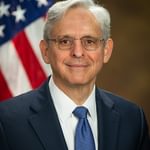
The U.S. Supreme Court has overturned a federal appeals court decision that had reversed the death sentences imposed on Dzhokhar Tsarnaev for his role in the 2013 Boston Marathon bombings that killed three people and injured more than 250 others.
In a 6 – 3 decision authored by Justice Clarence Thomas and joined by all members of the Court’s conservative supermajority, the justices reinstated Tsarnaev’s death sentences and remanded the case to the U.S. Court of Appeals for the First Circuit to decide the penalty-phase issues the court found it unnecessary to address when it vacated Tsarnaev’s death sentences in July 2020. Justice Stephen Breyer, joined by Justices Sonia Sotomayor and Elena Kagan, dissented.
A unanimous panel of the circuit court reversed Tsarnaev’s death sentences on July 31, 2020, finding that the trial court had failed to adequately question jurors about their exposure to pervasive pretrial publicity about the case. Though District Court Judge George A. O’Toole, Jr. properly inquired as to the sources of information from which jurors had heard about Tsarnaev and the bombing, the appeals court wrote, he failed to question nine of the twelve impaneled jurors about the content of what they had read and heard, including inaccurate and inadmissible information.
Justice Thomas disagreed. Trial courts have “broad discretion” over questioning jurors, he wrote, and Judge O’Toole “did not abuse [the court’s] broad discretion by declining to ask about the content and extent of each juror’s media consumption regarding the bombings.” The appeals court, he wrote, lacked the authority to “supplant the district court’s broad discretion to manage voir dire by prescribing specific lines of questioning.”
The appeals court also granted Tsarnaev a new penalty-phase hearing because Judge O’Toole had unconstitutionally prevented him from presenting evidence supporting the mitigating circumstance that he had acted under the domination of his violent and radicalized older brother Tamerlan. Justice Thomas wrote that the district court had acted within its discretion to exclude evidence that Tamerlan had previously murdered three people in Waltham, Massachusetts in an act of jihad. Judge O’Toole’s ruling that the evidence was “without any probative value” and “would be confusing to the jury” was reasonable, Thomas said, in light of the fact that all of the participants in the Waltham murders were dead and there was no “way to confirm or verify the relevant facts.”
The appeal returned to the case to an earlier stage of the appellate process, likely adding years to its journey through the courts. Retired Massachusetts federal district court judge Nancy Gertner explained to Boston Public Radio that Tsarnaev’s appeals would still be in the courts “for many, many, many years.” The case, she said, “is not remotely over.”
In dissent, Justice Breyer wrote that the Waltham evidence was more probative of Tamerlan’s violent radicalization than a host of other evidence the trial court had permitted Dzhokhar Tsarnaev to present. Moreover, he wrote, the Government had used the very evidence the district court excluded to “establish probable cause that Tamerlan committed the Waltham murders” and to obtain “a search warrant for Tamerlan’s car to look for evidence of those murders. … [T]he fact that both the Government and a federal judge found the evidence sufficiently reliable to establish probable cause that Tamerlan committed the murders,” Breyer wrote, “strongly suggests that the District Court here abused its discretion in concluding that the same evidence was so unreliable that Dzhokhar could not use it as mitigating evidence to establish the same proposition.”
The Supreme Court’s decision will force the appeals court to address claims it had previously avoided related to charges that two of the jurors failed to disclose evidence suggesting that they were biased against Tsarnaev. That evidence showed that the forewoman had tweeted or retweeted about the bombing 22 times — including commenting on the psychological impact of being at work while her family was “locked down” during the manhunt for Tsarnaev — and then concealed that information during jury selection when asked about her social media activity. A second juror had violated the court’s order to stay off social media and posted on Facebook that he was in the jury pool for the case. In response, one friend urged him to “play the part so u get on the jury then send him to jail where he will be taken care of,” and another wrote, “if you’re really on jury duty, this guys [sic] got no shot in hell.” When the defense learned of those posts, Judge O’Toole refused to question the jurors about them and refused to remove them from the jury.
The Community’s Response
Massachusetts has no death penalty and the Boston community has been deeply divided over the case.
Tsarnaev was sentenced to death for placing and setting off a bomb that killed two people — 8‑year-old Martin Richard and 23-year-old graduate student Lingzi Lu. In an open letter in the Boston Globe on April 16, 2015, Martin’s parents, Bill and Denise Richard, implored federal prosecutors to drop the death penalty. “We sat in the courtroom, day after day, bearing witness to overwhelming evidence that included graphic video and photographs, replicated bombs, and even the clothes our son wore his last day alive,” they wrote. “We know that the government has its reasons for seeking the death penalty, but the continued pursuit of that punishment could bring years of appeals and prolong reliving the most painful day of our lives. We hope our two remaining children do not have to grow up with the lingering, painful reminder of what the defendant took from them, which years of appeals would undoubtedly bring.”
Justice Thomas’ opinion included a graphic description of Martin’s death. The Richard family declined media requests for comment on the decision.
Massachusetts U.S. Attorney Rachel Rollins, who earlier had indicated she would pursue a new death penalty trial for Tsarnaev if directed to do so by Attorney General Merrick Garland, released a statement praising “the resiliency of our city, the families of the victims, and the hundreds of brave survivors.” Noting that other legal issues remain “that must be addressed by various courts,” she said “[l]egal rulings don’t erase trauma and pain. Our focus today, and always, is on the hundreds of families that were deeply impacted and traumatized by this horrific act of domestic terrorism.”
In a statement, Massachusetts Gov. Charlie Baker said, “While nothing can ever bring back those we lost on that terrible day, I hope today’s decision will bring some sense of justice for victims of the Boston Marathon bombing and their families.”
U.S. Representative Ayana Pressley, the author of one of the bills to abolish the federal death penalty, issued a statement ripping the Court’s decision. “State-sanctioned murder is not justice, no matter how heinous the crime,” she said. “The Supreme Court’s decision today to reinstate the death penalty in the Tsarnaev case is deeply disappointing, but unsurprising for this far-right majority Court that has shown time and again its contempt for the people.” Pressley renewed her call on President Biden “to take executive action to halt federal executions, commute the sentences of those on death row, direct DOJ prosecutors to no longer seek the death penalty, and dismantle the death row facility at Terre Haute.”
Much of the Boston Marathon route runs through Pressley’s congressional district. “I remain committed to accountability and healing for everyone impacted by the Boston Marathon bombing,” she said. “I pray for those who are forced to re-live their trauma each time we are reminded of that devastating day.”

The Tsarnaev Case and Federal Death-Penalty Policy
The Court’s decision renewed questions concerning the Biden administration’s policy on the federal death penalty. During the 2020 presidential campaign, then-candidate Biden pledged on his campaign website to “work to pass legislation to eliminate the death penalty at the federal level, and incentivize states to follow the federal government’s example.” Since taking office, however, the White House has not taken any action on bills to abolish the death penalty or requests that he prevent future federal executions by commuting the sentences of the prisoners on federal death row. Instead, the White House has left it to the Justice Department to set death-penalty policy.
After the Tsarnaev decision was announced, White House Press Secretary Jen Psaki told the media that Biden “knows the deep pain that [Tsarnaev’s] crime caused” and “believes that Tsarnaev should be punished for responsibility in the murder of three innocent people at the marathon, for wounding dozens of others.” Without committing the administration to any policy position, Psaki added that Biden “has expressed before that he has deep concerns about whether capital punishment is consistent with the values that are fundamental to our sense of justice and fairness.”
Attorney General Merrick Garland has pursued a policy that, critics say, is inconsistent with Biden’s professed opposition to the death penalty. In June 2021, Garland paused federal executions while DOJ reviews changes to federal death-penalty policy that were adopted during the Trump administration. However, he has given no assurances that executions will remain on hold after the review is complete and the Department continues to review cases on an individual basis to decide whether to seek the death penalty. In his memorandum announcing the review of the Trump policies, Garland wrote that DOJ must “take care to scrupulously maintain our commitment to fairness and humane treatment in the administration of existing federal laws governing capital sentences.”
The same day the Supreme Court reinstated the death penalty in Tsarnaev’s case, federal prosecutors in North Dakota — which like Massachusetts does not have a state death penalty — filed notice that they intend to appeal a federal district court ruling that overturned the death sentence imposed on Alfonso Rodriguez.
Greg Stohr, Supreme Court Reinstates Marathon Bomber’s Death Sentence, Bloomberg Law, March 4, 2022; Milton J. Valencia, Travis Andersen and Jeremy C. Fox, US Supreme Court reinstates Tsarnaev death penalty, Boston Globe, March 4, 2022; Bryan Metzger, Ayanna Pressley slams ‘far-right majority’ Supreme Court for reinstating the Boston Marathon bomber’s death penalty: ‘State-sanctioned murder is not justice’, Business Insider, March 4, , 2022; Adam Liptak, Supreme Court Restores Death Sentence for Boston Marathon Bomber, New York Times, March 4, 2022; Robert Barnes, Supreme Court reinstates death sentence for Boston Marathon bomber Dzhokhar Tsarnaev, Washington Post, March 4, 2022; Rebecca Tauber, Tsarnaev death penalty appeals are ‘not remotely over’ says former judge, WGBH, Boston, March 4, 2022; Jim Monk, Feds will ask appeals court to reinstate death penalty for Rodriguez, KVRR-TV, Fargo, March 4, 2022.
Read the U.S. Supreme Court’s decision in United States v. Tsarnaev.
United States Supreme Court
Oct 08, 2024

United States Supreme Court Will Consider Significance of Prosecutor’s Confession of Error in Glossip v. Oklahoma
United States Supreme Court
Sep 19, 2024

Hispanic Heritage Month: Leonel Herrera and the “Agony of Doubt”
Federal Death Penalty
Sep 03, 2024
